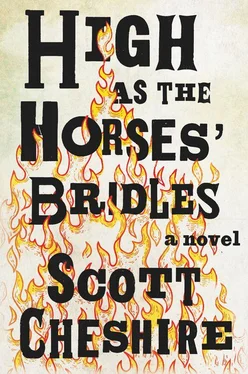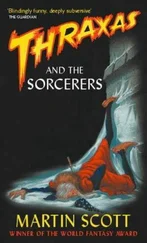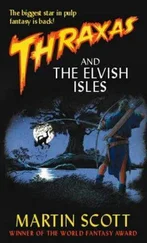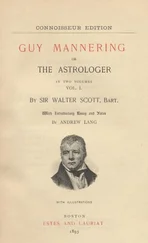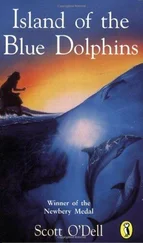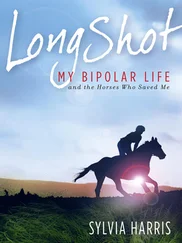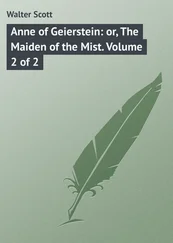I eventually learned all this, and indeed I took it into my stupid heart, but not before the melodrama totally soured Sarah and me; and not before Sarah got pregnant; and not before we did not keep it; and not before all of this gave way to anger, so much displaced anger. And thus, hence, my “Mad Max” period, so called by Sarah, because I was mad at everything I saw and acted like the world was “nothing but dead bones and dust,” her words (I wasn’t the only one who could be dramatic). We fought fiercely about every fucking thing under the sun, except what mattered.
We split for good.
And then we tried again. Split. And tried again. We did this for years. We eventually divorced.
Then Mom died, a long and slow and eventual demise that felt more like she just went to sleep, and finally she never woke up. What she’d wanted all along. Losing Mom weirdly cushioned the divorce proceedings, probably because, well, the worst possible news certainly lessens the impact of just bad news, and also because I’d somehow gotten it into my head that if Sarah stayed in my life she would almost certainly die.
There is a sad and ironic sort of symmetry regarding Sarah’s pregnancy, how after years of talking over the idea, it was only later on, after arguments and insults, and at least one assault with a kitchen utensil, that my seed took root in her womb as a result of what felt like goodbye-forever sex, both of us neck deep already in a trial separation, and that we didn’t keep it, and how it was this whole distressing scenario that flung us back and forth at each other, for years afterward, until one day we realized our marriage had actually died long before. I’m told the procedure wasn’t as physically painful or emotionally traumatic as it might have been if she had not decided and acted so quickly. I’m not so sure. I drove her home from the clinic.
My immediate response to hearing she was pregnant was the last thing she’d (or I’d) expected: “Let’s keep it,” I said. “Please.” I look back at this now and, sure, I see how desperate I was. Maybe a baby would have fixed us. Sarah knew better than I did, so we wound up talking about it for hours and hours. I was also worried it might be my only chance, the Laudermilks’ last chance for survival. I didn’t mention this. The procedure took place inside of the first four weeks. And regardless of what the doctor said, and the pamphlets, and the websites, and what Sarah said, too, who promised it would all be fine, it was an awful morning all around. She spent the remainder of the day in the bathroom. She let me help her in, and prepare the water, get it warm, and hang a bath towel and a robe within reach.
She asked me to leave.
I stood there at the door for a long time, listening for signs of anything I could do that might be helpful. I talked to her some, too. But she wouldn’t answer for a long time, and then she said, “I love you, Josie.”
Stammering, I said it back. “I love you, too.”
“But you have to leave me alone now. Okay? I’ll know if you’re by the door. Promise you’ll leave for a while. Please.”
I did. And then the doorbell rang.
“Go,” she said.
I went into the bedroom, stepped over the treadmill, and looked out the window.
At first I didn’t realize what I was seeing, and then I questioned whether or not I was guessing correctly. There were two young men standing at our door.
I looked at them, sort of in disbelief, at the timing mostly. I waited.
They rang the bell again.
They wore dark suits, flat shoulder bags propped between their feet. They didn’t lift their heads. One had a Bible in his hands, the edges of its pages glistening in the afternoon sun. The other had a magazine rolled in his grip. It was clear: two Jehovah’s Witnesses, my father’s former brothers, and my ancestors in a way. I watched them moved on to Bev’s door. They rang her bell, and waited. Knocked. And then they moved on to Charlie’s door. I thought of Sarah who was not but two rooms away, and found myself suddenly offended by the intrusion. I wanted a smoke. But then, unexpectedly, a very small part of me also wanted to open the window and call down to them, ask the young men inside, and offer them water, a chair. It was like my past had come knocking and here I was looking at it.
I went over to the bathroom door, tapped gently. “I’m gonna step outside.”
She didn’t answer.
I went downstairs, opened the door to the courtyard, and said loudly, while lighting a cigarette, nonchalant, “Can I help you?”
The taller one turned, and said: “Good morning.”
He walked over to me, and placed his shoulder bag on the ground. He was maybe nineteen, and had the delicate face of an adolescent with allergies. He motioned his partner over, and said, “My friend Gerard and I were in the neighborhood and we’re sharing some good news for a change. Isn’t this a fantastic day? Are you a Bible-reading man?” He opened his and flipped through its pages.
I turned and blew smoke behind me, but a breeze sent it back over my head like a hood. I started coughing.
He said, “If you’re in no mood to talk, that’s fine. Just one scripture, and we’ll leave you be on this fine day.”
I noticed a spot of unshaved whisker beneath the left side of his jaw. A pimple. The thinner end of his tie was hanging too long from behind, tucked inside his pants. I was still coughing. I cleared my throat. “What’s your name?”
He closed the book. “Bart. And you, sir?” He put out his hand.
I took and vigorously shook it. “Josie,” I said and looked up at the bedroom window. He looked up with me, followed my gaze.
“Forget something?”
“Bad day,” I said.
“Even the bad days are a gift.”
I looked at him. “I suppose.” I looked up at the sky, and then back at him. I was starting to sweat. I wiped my forehead.
“Can we help at all?” he asked, looking at Gerard, at me.
This took me aback. “With what?”
“You tell us,” Bart said. “You’d be surprised how much comfort the scriptures offer.” He was kind of glorious there in the bright wash of morning, palm fronds painting low shadows on his sunlit suit. He said, “There’s always a cause for sadness, right? It’s the nature of an earthly life. But a spiritual life can be joyful, too. Our Heavenly Father loves me. He loves you. I know His love, and this”—he presented the world: trees, sky, and sun—“all of this was made for me.”
Gerard said, “I have this knowledge, too.”
This touched me. It really did, to really know something, to be so sure of something like this. I don’t know what I’d expected from them, but it was nothing like this. Back in my younger and angrier years, whenever I saw the Witnesses, I felt either a great sadness, a pitiful and frustrated sadness for them, but also for myself because I was clearly projecting, or I felt a fast-abating fury, for lots of irrational reasons, one quick blast of invisible anger directed right at them, and also of course directed right at me. We don’t like to see who we were, or who we still are in the places buried deep within us. But here they were at my door, and what did I feel? I was jealous! Jealous for their abiding assurance. Plus I was truly moved, I have to say, because I saw Bart really meant it. He wanted to comfort me. He wanted to help.
“My wife is ill,” I said. “But thanks. And you guys,” I was looking for the right words. “You’re doing fine work. Just wanted to say hi, I guess.” We were silent for a few awkward moments, our three heads warming in the sun.
Bart said, “We can just say hi. Like people.” Gerard laughed.
There was a white dusting of what looked like doughnut powder on Bart’s left lapel, and I saw Gerard was slightly paler than his partner. A thick blue vein ran along the length of his neck like a power cord. I backed up a few steps, and stopped. Stood there. They stood there, too. What was I waiting for? What did I expect? Time bent all around us, and I realized this easily could’ve been me — I could’ve been Bart. I was Bart. And he was me.
Читать дальше
